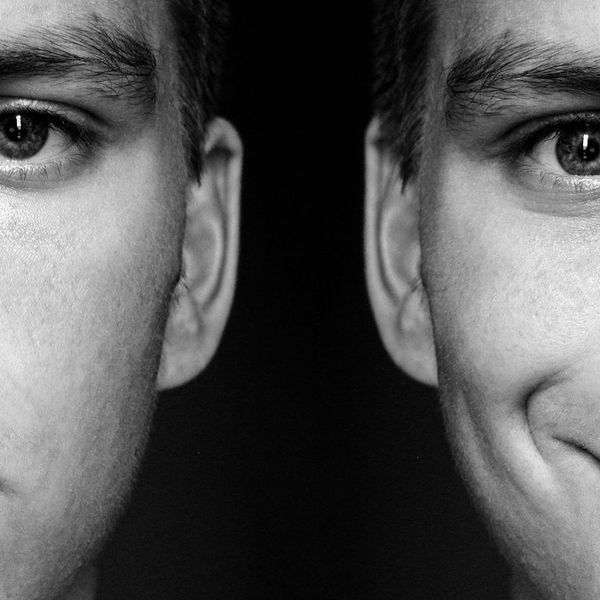You failed a paper.
Your dog died.
Your best friend lied to you.
Anyone can relate to one of these statements. These may not have happened recently, but everyone can relate to the profound sadness that comes with a bad grade, death, or betrayal. Choose one of these scenarios and imagine the sadness it fills you with. You are angry at the world for failing you. You are angry at yourself for failing the world. You want to cry over the small things that seem so huge at the moment.
Your mom walks in the room. You perk up and run to her for comfort. You cry “Mom, I am so upset because of my math test” or “Mom, Becky has been dating Tommy behind my back”. Rather than comforting you or telling you it will be okay, your mom responds with “You're not sad, you are actually incredibly happy. You should be optimistic and looking forward to your future”. Confused, angry, and deeply frustrated by your mom’s response, you run to your best friend to share your news and look for consolation. Again, you are met with words of doubt and disinterest over your current dilemma. Now sobbing, you choose your final person to bring your situation to: your therapist. You figure that they will have wise words on how this situation may turn out to be a positive or how all things happen for a reason. Frustratingly, the only words you are met with are “I don’t believe you. You are making this up. You are a faker”. Now sobbing you give in to your emotions.
You are upset.
You are betrayed.
You are alone.
You have now experienced what it is like to live as a person with a chronic illness every day. Whether physically ill, mentally ill, or all of the above, the chronically ill are told every day that their situation is not real. They are met with words of criticism rather than encouragement. The words “I believe you” begin to be met with gazes of astonishment as they become less and less likely to be said. The chronically ill walk through every day of life knowing that few people will believe they are truly sick. Every day they will be called ‘attention seekers’, ‘fakers’, or ‘phonies’. Rarely are they seen for the genuine, courageous fighters that they are every second of every day of their lives.
This lack of belief over their situation is what drives so many of the chronically ill into downward spirals. Some become depressed or more depressed, some become lonely, some begin self-medicating, and the worst off commit suicide. There are two things that all of these people have in common: They are strong every day of their lives, and they will walk through every day being told their situation is not real.
Every single one of these people is a fighter. Whether they give in to their struggle or not is their choice, but not one of the chronically ill’s lives should be devalued. Often times when people with chronic illnesses give into their battles, it is not because they were not strong enough. These people give in because they feel a sense of defeat. These people can no longer take the overwhelming disappointment and loneliness that society forces on them. They feel guilty for being a burden, they feel guilty for seeming normal, and they begin to put others’ happiness above their own. The people that are lost to chronic illness are not weak, they are fighters. Often the pressures that society puts on these people is too much, and they snap like the twig that the names ‘faker’ and ‘phoney’ force them to turn into.
There are two things society can do for these people.
1. Never devalue the effort that these people put forth every day.
Every day will be an uphill battle with various illnesses, and they need all hands on deck to make it through another minute. Even if they give in, do not ever call them weak, because they will always live with more than anyone ever should deal with.
2. Believe these people in their battles
It may seem hard to believe when a seemingly normal person tells you that they have depression or anxiety, or that they have chronic pain or chronic fatigue, but always remember that you cannot see the battles every person faces. Remember that even if you may appear happy, there may be a legitimate reason for you to be upset, and just as you wish for people to believe you, believe the others around you.
To the chronically ill: Never give up your battle. I know that life gets hard. I have been there myself when the pain or fatigue becomes so bad that you would rather die than keep living, but you will make it another day. There are constantly new trials, medications, and treatments coming out that could save your life if you hold on just a little while longer.
To the healthy: I hope that this article could provide some perspective into how the chronically ill live every day. They live in crippling loneliness and fear that they will be doubted by you. You may not realize it, but you hold much more control over their lives than they would ever like to admit. You decide if they are believed, you decide how they are perceived, and you decide if some of them live another day. Some battles may not be visible, but all require a level of strength.
This article does not in any way promote suicidal thoughts or actions, but is an attempt to prevent people with chronic illnesses from being discriminated against in the future. If yourself or someone you know are considering suicide, please call the National Suicide Hotline at: 1-800-273-8255
Want to have your voice heard? Interested in joining the Influencers of New Jersey community? Request an invite here.





















